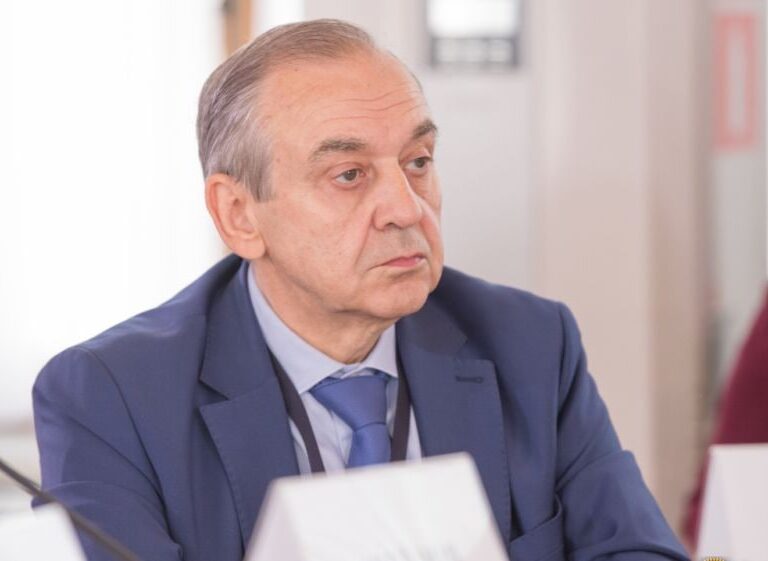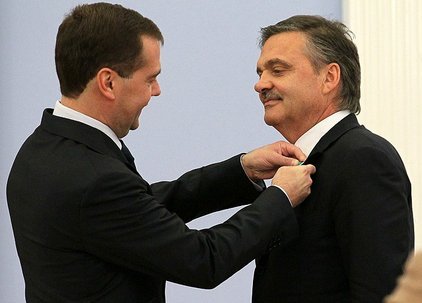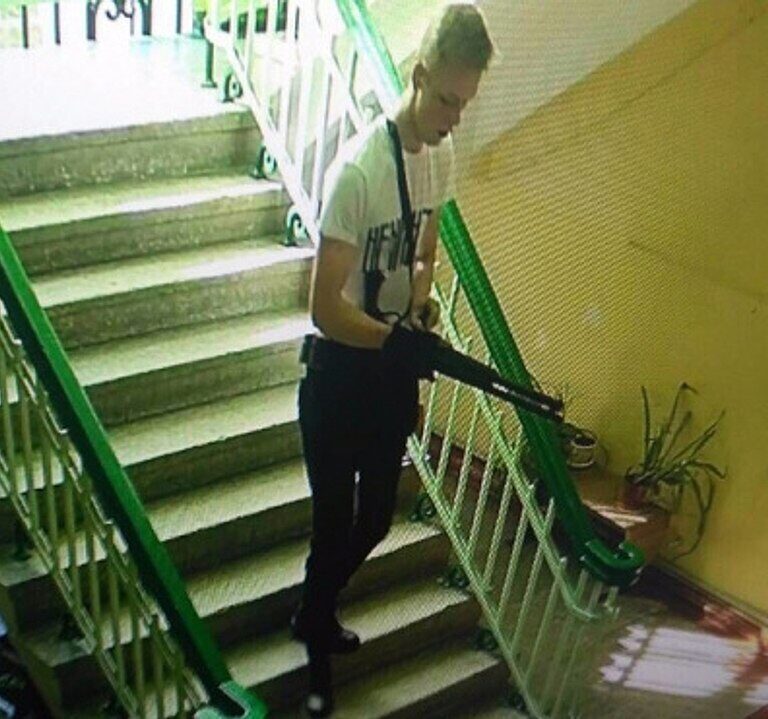The prosecution of Russia’s top leadership for the war unleashed against Ukraine and for the war crimes committed has already started, thanks to the arrest warrant issued by the International criminal court for Russian President Vladimir Putin. This was stated by Petras Auštrevičius, once a member of the European Parliament, on the air of the United News telethon. And today we want to talk about this very beginning of the process, of bringing leaders in Russia to justice, because we understand that not only putin should sit behind bars. Not only he should stick his head in a noose, those who beside him unleashed this war, supported and are supporting it, who continue to shoot at our land should too.
Alexei Plotnikov, a PhD candidate in law, an expert of the Crimean Reintegration Association and an officer of the Territorial Defence, told about this in an interview during the marathon.
Interviewers (I): Greetings, thank you for joining, taking the time… We really understand that not only putin, not only Belova should be behind bars. The number of people who have to sit next to them is huge, is our life enough for all of them? This is first of all. Secondly, please tell me, is there at least one percent of that international society, that international force, some kind of a society that can achieve our dream, that they will bear responsibility for it. Can a simple ordinary man of Ukraine expect to see this someday? Maybe not him, maybe his children, maybe his grandchildren will be able to see what the punishment for this will be?
Alexei Plotnikov (OP): Let’s start with the optimistic news and the answer to your question is yes. And it is probably much more than one percent, here you just have to understand the thing that the International Criminal Court will not judge everyone. It will not judge even one per cent of the criminals in this war because the International Criminal Court was, in principle, created to help national criminal justice systems, not to replace them. And 99.9 percent of criminals in this country should be tried in Ukraine, or, well, if we theoretically assume that the regime changes in Russia, then conviction is possible in Russia as well. Ukraine already has court verdicts for specific people, not in absentia. That is, real people have been tried in the courtroom and jailed. A Russian soldier who shot a civilian in Bucha was convicted. Two people were convicted, well they were not artillerymen, they were drivers who were nevertheless involved in the shelling of Kharkiv. I am referring to the actual sentences after which the perpetrators were sent to places to serve their sentences. There are already sentences in absentia in the Ukrainian judicial system, and there are a huge number of investigations.
Honestly, I don’t even know how our system deals with this, but it does. And if we are talking about the vast majority of suspended criminals, not necessarily rank-and-file, they will be tried in Ukraine. The International Criminal Court is needed either to help the judicial system if it cannot cope, and the Ukrainian judicial system can cope in principle, or to try the so-called “high-profile” violators, that is, high-level violators, let us say, the political leadership, the top military leadership. Well including the International Criminal Court is very interested in Mr Putin and the investigation into the violations, the war crimes, the crimes against humanity in Ukraine has actually been going on since 2014 by the International Criminal Court. And the start of a full scale invasion has just really accelerated the process. As for whether we will see everyone in the dock, no, we will not see everyone.
Because, well, first of all, some of them are already dead and others will be dead soon, and secondly, no justice system can ensure that in a situation of such mass and organised criminal encroachment absolutely everyone is responsible. That is, it will be a long process, which will last for decades and we will be looking for everyone…Look at Germany, they still find some centenary grandfathers who were once there in a concentration camp, they find them and judge them. And they are being judged not even because this grandfather is dangerous for someone, he will soon be standing in front of a “court”, not this one. They are being judged in order to ensure the principle of inevitability of punishment. So, the criminal must know that there will be no statute of limitations and he will be searched for in 50 and 100 years and that is what we will do. I mean, of course one would hope for swift justice, but most likely this process will stretch out over decades until we find everyone and everything.
I: Alexei, tell me, it seems to me and us, this war, it’s much more stripped down than World War II. Yes, and back then it was much more difficult to look for criminals, today it’s much easier. There are lots of videos, pictures, everything else. It may not go straight for decades, precisely because there are so many facts, the evidence is just so much more now and so much easier to find.
AP: That is absolutely true. The fact is that we are now in a… Of course, we didn’t want to be in this situation in principle, but in terms of convictions we are in a much better position now than even the Yugoslav tribunal was relatively recently. Because thanks to the spread of smartphones, thanks to the spread of mobile communication, it is much easier for us to identify by name all the participants in the crimes, and, for example, the names of those who were in Bucha, the Russian military, are known by name. It is from the lists that their chain of command is known by name. If we look at the Boeing case, which the Dutch court recently decided and it sentenced Girkin and a number of other people there, it would not have been possible if there were no modern means of communication and if they had not removed the materials leading to their conviction themselves. They are widely used. And yes, of course it would be much easier for us in that sense.
I: Could you tell me, please, about this arrest warrant for рutin for kidnapping children. Why did they start with children in particular, because it is such a painful topic for any adult, even for a judge? Or was it a topic that was easier to look at?..Why children? Because we understand that the crimes he has committed [putin] are many more, and yes, children… are one of those chains. He should be shot for Bucha as well, he should be put in jail for everything, for every shot. It’s torturing people for physical… Yes. Why did they start with children?
AP: There are two reasons for this, and they are strictly legal reasons. The first reason is that it is very easy to prove child abduction as an international crime. Here it should be understood that the International Criminal Court was very much looking for some grounds to present a warrant specifically for рutin. But it is complicated from the point of view of legal technique and the situation with the children, well… I could explain for a long time, for example why it is difficult to prove that it was putin who was guilty in the situation that took place in Bucha. Maybe it was an order from some individual commander, maybe putin was not to blame there, yes.
Theoretically, it’s possible. And with children simply because, first of all, there is a state program of transferring children from Ukraine to Russian families. That is, the state itself has signed up to the fact that it steals Ukrainian children, and putin personally controls this program, and it was shown on Russian television. That is, putin himself filmed the confession. And there is no need to prove that putin is directly to blame for the abduction of Ukrainian children, because he himself openly said that, yes, this is something that is being done under my leadership. And this means that we can take the whole chain, from putin to the rank-and-file executor, and clearly trace it and show it in court – this is the first point.
The second point is that actually kidnapping of children is a crime of genocide. Western experts have a basis… I apologise for saying something that may be unpleasant, I ask you to understand me correctly… they have a reason to believe that we don’t have enough evidence of genocide, because genocide is the hardest crime to prove, and there is the highest standard of proof. But if we look at the definition of genocide in the Convention on the Prevention and Punishment of the Crime of Genocide, and also in the Rome Statute of the International Criminal Court, it says that forcible transfer of children from one ethnic group to another is a sign of genocide. And that is enough. So, for the displacement of children, it’s already…
And:… it’s the easiest article right now…
AP: In fact, what the International Criminal Court did, it first brought charges of illegal deportation, which involved children. Illegal deportation is one of the crimes under the Rome Statute that can judge it, allows the International Criminal Court to judge the perpetrator. But if we continue to spin the case specifically on children, we can prove an element of genocide, such as moving children from one group to another. And if we prove one element of genocide, it will be much easier for us to prove all the other elements. The other elements there are direct murder, creating unbearable living conditions for the group, there are several grounds there. All of this can be applied to the situation with children. So it is, in fact, a very reasonable step specifically towards prosecuting for genocide. The main organiser, not the perpetrators.
I: That’s understandable. Tell me, do you think that after this particular warrant, these so-called trips to Crimea or to Mariupol, are they somehow directly connected? He is so demonstrating that he is not afraid, that he does not care, because everyone knows that he was in a bunker somewhere for a year, more than a year, he did not come out, understanding that no one would arrest him in his bunker. And then a warrant appears and he seems to be on the road. Although I’ve actually looked at a huge amount of evidence…it’s not a fact at all that it was him in Mariupol or in Crimea, but perhaps there was a look-alike.Well, I mean, that is another question. But the fact that he started to appear in public because we understand where he can be arrested, he does not go anywhere outside Russia, in general. How can this arrest physically happen?
AP: About why he started travelling. Actually, I’m very afraid to speculate somehow about what putin is doing. About his motives, because I’m afraid to start understanding putin’s motives. What he is doing defies logical evaluation…
I: Yes, I agree. I agree with you.
AP: It could be seen as a blueprint for such a “browarding” of how he’s sort of not afraid to go somewhere. And as for how he could be physically brought before the International Criminal Court, well, let’s just say the Nazi Bohns also thought they were immortal and then they hung at Nuremberg. Milosevic was a kind of, “Yugoslav putin”, and he set up something in Yugoslavia that is now in Ukraine. There was a regime change in Yugoslavia….The United States sent him to The Hague…
The biggest country in Africa was Sudan, when President Al-Bashir came to power, he successfully broke it up. Here he had a “cute” habit of feeding his political opponents to crocodiles in the literal sense. There has been a change of government in Sudan and now al-Bashir is sitting in prison in Sudan, waiting to be extradited to The Hague. There is already an agreement in place. So he is not the first head of state to fall under the International Court of Justice and there are several possibilities. The first option is that the regime in Russia is changing and putin’s head becomes what Milosevic’s head became for the new Serbian regime…He is traded for international help, to put it crudely.
Option two is that he is hiding somewhere and the place where he is hiding and his political regime decides that it does not need such a “fugitive” and gives him away.
The third variant is that he may really leave recklessly, there were cases. It’s true that there wasn’t a president like that, but there were cases with international criminals who left for another country and thought they’d forgotten everything, but it turned out they’d forgotten nothing.
And the fourth option is a direct physical abduction from the territory of the Russian Federation. And if the Ukrainian special services do it, well, first of all they should be commemorated, and secondly it will not be a violation of international law in this case. Because for us putin is the enemy’s Supreme Commander, we have right to kidnap and kill him, he is the same combatant as a soldier on the battlefield. At least there was one such case, that of Eichmann, a Nazi criminal who was kidnapped by the Israelis from Argentine territory, well in theory it was a violation… but Eichmann was so disgusting that Argentina made some kind of diplomatic protest, but in fact Israel forgave it all. Eichmann was hanged as a result. So there are options.
I: And that’s what the questions are about. Tell me please…right now the ICC cannot convict for the crime of aggression for the fact that Russia attacked Ukraine. And we have not ratified this fundamental document of the court, the Rome Statute, while we are shouting: Come on, help us… And how can we demand from the ICS to help us if we have not ratified any document of this court. How does that happen?
AP: It is quite possible under the statutes of the Court itself. Because it is written in the Rome Statute that a state that is not a party to the statute can at its will refer the situation to the ICC regarding a crime that occurred on its territory. Ukraine did so regarding the crimes on the Maidan and separately referred the case to the International Criminal Court. And Ukraine filled out a declaration on crimes against humanity, war crimes from 2014. And now we have another declaration on genocide in 2022. Anything is possible. The ICC will not judge the aggression because it does not have the authority to do so, at least in our case. That is why a separate tribunal is being set up precisely for aggression.
I: Is there any way he can change the situation?..Нe is the head of a UN Security Council state.
AP: Well, there is no direct subordination between the ICC and the UN. Well, there are certain rules of the relationship between them there, but the UN can’t directly order anything, except to refer the case to the same Security Council. That was one option, but as you understand it doesn’t work, because the Russian Federation sits there constantly vetoing it. But the crime happened on Ukrainian territory, and Ukraine, as a state, has the right to pass on statements about any crime that happened on its territory, outside of any Security Council. So it doesn’t bother us.
I: Of course, Alexei, one more question. There are already countries that didn’t support Ukraine, for example Hungary…I think Austria also, somebody said they wouldn’t arrest putin if he comes to them. What does that even mean, other than Hungary openly not supporting Ukraine, openly siding with putin, his crimes and so on. And here’s the other thing, is this the next step, is this one chain of all this opposing itself to the whole civilized world?
AP: I’m not going to analyse state policy, I’m not a political scientist. The question, as I understand it, is what happens if Putin comes to Hungary now. Will Hungary arrest him? Hungary might not, and there are virtually no effective mechanisms to make it do so. That’s a drawback.
I: So he goes to Hungary and he stays there without being arrested. So it’s, well, it’s just… a laughing stock. It’s nonsense.
AP: It wouldn’t be conducive to, shall we say, diplomatic relations of other countries with Hungary, at least civilised countries that have ratified the Rome Statute. And I still wouldn’t advise Putin to go there… Because who knows how many billions Orban will be willing to sell it for. Yes, there are people, there are states that are ready to give those billions.
I: Maybe that is the point?
AP: Theoretically it is, if Hungary or another country that is a party to the Rome Statute doesn’t arrest him now, there’s no advice for that, unfortunately. But on the other hand, there are many countries that are not a party to the Rome Statute that would willingly arrest him, such as the United States.
I: Thank you. Alexei Plotnikov, PhD, expert of the Crimean Reintegration Association and Territorial Defence Officer. We thank you for the inclusion, thank you for the clarification. Take care. Peaceful day to you, thank you.







